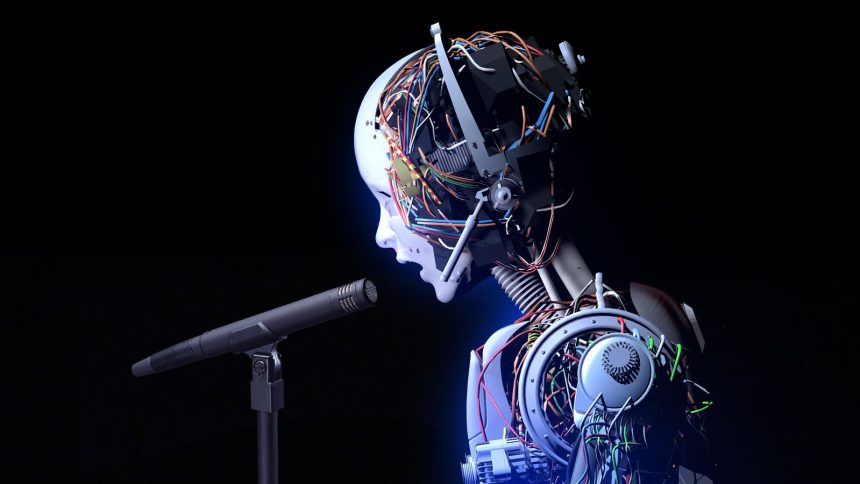The media and entertainment landscape is undergoing a profound transformation fueled by the relentless march of artificial intelligence. This transformative technology is not merely reshaping the industry; it’s reimagining the very essence of how stories are conceived, crafted, and consumed. AI is augmenting human creativity, personalizing audience experiences, and empowering data-driven decision-making, ushering in a new era of innovation and engagement. From the initial spark of an idea to the final delivery of a captivating narrative, AI is deeply interwoven into every facet of the media and entertainment ecosystem.
One of the most significant impacts of AI is its ability to amplify human creativity. The arduous and time-consuming tasks associated with content creation, such as brainstorming, writing, and editing, are now being streamlined by intelligent algorithms. Large Language Models (LLMs), powered by sophisticated deep learning architectures, can generate compelling storylines, craft catchy headlines, and even assist with scriptwriting, freeing up human creatives to focus on higher-level artistic choices. Visual storytelling has also been revolutionized, with AI-driven tools automating tedious tasks like color correction, object removal, and scene transitions, allowing even amateur filmmakers and content creators to produce professional-grade visuals with unprecedented speed and ease. This democratization of creative tools empowers a wider range of voices to be heard, fostering a more diverse and vibrant media landscape.
Beyond content creation, AI is revolutionizing the audience experience, ushering in an era of hyper-personalization. Streaming platforms like Netflix and Spotify leverage AI algorithms to analyze vast troves of user data, including viewing history, preferences, and even real-time engagement patterns, to curate tailored recommendations that cater to individual tastes. This level of personalization keeps audiences engaged, reduces content discovery friction, and fosters deeper connections with the stories being told. Furthermore, AI plays a crucial role in online content moderation, proactively identifying and removing harmful or inappropriate content, ensuring a safer and more enjoyable user experience for all. This automated moderation enables platforms to scale their efforts while maintaining a high level of vigilance, something that would be impossible with human moderators alone.
The power of AI also extends to real-time audience feedback analysis. By tracking user sentiment and engagement patterns, AI provides invaluable insights into what resonates with viewers, allowing media companies to fine-tune their content strategies and develop narratives that truly connect with their target audiences. This data-driven approach minimizes the guesswork involved in content creation, maximizing the chances of producing successful and engaging narratives. This immediate feedback loop allows for iterative improvements and course corrections, ensuring that content remains relevant and captivating throughout its lifecycle.
Perhaps one of the most transformative impacts of AI in media and entertainment lies in its ability to revolutionize decision-making processes. Traditionally, decisions regarding which projects to greenlight were often based on intuition and educated guesses. However, AI is now empowering executives with data-driven insights, allowing them to make more informed and strategic choices. AI algorithms can analyze vast amounts of historical data, market trends, and consumer preferences to predict the potential success of movies, TV shows, and other content before they even enter production. This predictive power significantly reduces financial risks and ensures that resources are invested in projects with the highest probability of success, maximizing ROI and fostering a more sustainable entertainment ecosystem.
Moreover, AI is transforming the advertising landscape by enabling hyper-targeted ad delivery. By analyzing user data, AI algorithms can identify the most relevant audiences for specific advertisements, ensuring that ads are seen by those most likely to be interested in the product or service being promoted. This targeted approach yields higher engagement rates, improves campaign effectiveness, and delivers a better ROI for advertisers. It also reduces the annoyance factor for users, as they are more likely to see ads that are genuinely relevant to their interests.
The impact of AI on media and entertainment extends beyond content creation and audience engagement; it is fundamentally reshaping the industry’s economic models. AI-powered automation is streamlining workflows, reducing production costs, and optimizing resource allocation. This increased efficiency frees up human capital to focus on more creative and strategic tasks, further driving innovation and pushing the boundaries of storytelling. The ability to predict market trends and consumer preferences with greater accuracy also allows companies to make more informed decisions about content investments, minimizing financial risks and maximizing the potential for success.
In conclusion, the integration of AI into the media and entertainment industry is not simply an incremental improvement; it represents a paradigm shift. AI is empowering creators with powerful new tools, enhancing the audience experience through personalization and engagement, and revolutionizing decision-making processes, leading to a more data-driven and efficient industry. As AI technology continues to evolve, its influence on media and entertainment will only deepen, further blurring the lines between human creativity and artificial intelligence, ushering in an era of unprecedented innovation and captivating storytelling. This symbiotic relationship between humans and machines promises to unlock a new golden age of media and entertainment, where creativity flourishes, audiences are captivated, and the boundaries of what’s possible are constantly being redefined.



